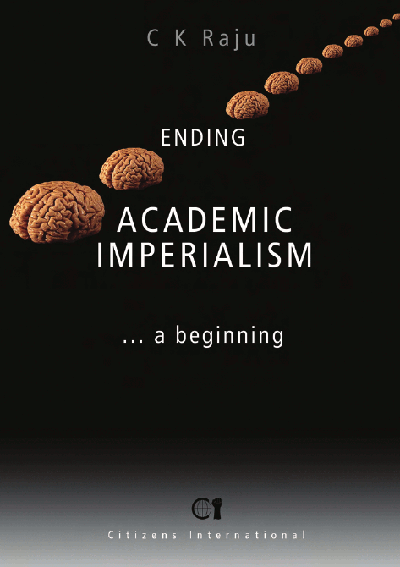Here is my new book (ISBN: 978-983-3046-15-7).

Academic imperialism begins with Western education, which has not been seriously challenged in hard sciences. Colonialism changed the system of education to stabilise Western rule through indoctrination. The change was possible (e.g. by Macaulay in India) just because a large section of the colonised elite had already swallowed the 18th c. racist history, that only the West had innovated in science. That bad history was bolstered by a bad philosophy of science, both fundamentally warped by the religious fanaticism which overwhelmed Europe from the Crusades in the 11th c. until the 17th c. Therefore, to end academic imperialism it is necessary to take the following steps.
(a) Dismantle and expose the falsehoods of this Western history of science. (b) Change also the accompanying philosophy of science. (c) Use this to construct a new pedagogy, particularly in the hard sciences, and demonstrate its practical value, and thus dismantle the colonial education system. (d) Dismantle the Western power structure at the level of higher-education and research. The immediate action items relate to (c) and (d). Accordingly, an experiment was carried out to test a new pedagogy of the calculus (“5-day course on calculus without limits”) based on a new history and philosophy of mathematics. This eliminates the religious bias in present-day mathematics, and enables the calculus (which is at the base of hard science) to be taught very easily, even to non-math students. As regards (d), it is planned to start a new society and journal on alternative history and philosophy of science which would disallow reliance on secondary Western sources, regarding them all as untrustworthy, in principle, and needing independent confirmation.
More details here.
A condensed version was earlier published as “Ending academic imperialism in the hard sciences: A beginning”, in Confronting Academic Knowledge, ed. Sue-san Ghahremani Ghajar and Seyyed-Abdolhamid Mirhosseini, Iran University Press, Tehran, 2011, chp. 7, pp. 146-174.